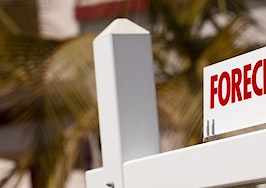- Chicago's housing supply is at three months.
- Chinese investors are the most active foreign buyers in Chicago, primarily acquiring condos.
- A decline in distressed sales is benefitting overall home prices.
Last year, on a year-over-year basis, the Chicago real estate market saw a nearly 8 percent rise in total home sales coupled with a 7 percent spike in median price, according to the Illinois Association of Realtors.
This year all indicators–primarily inventory levels–suggest similar year-over-year gains will occur.
Lowest Chicago inventory in eight years
Entering 2016, the city of Chicago was coming off a month when supply levels declined by 18.4 percent year-over-year, down to roughly three months of supply. This level of inventory is the lowest since January 2008.
[Tweet “Housing supply hits an 8-year low in Chicago, will drive pricing in 2016.”]
“Inventory is driving prices,” said Dan Wagner, president of the Chicago Association of Realtors, adding because of the shortage of available homes interested buyers must move quicker and make competitive offers.
Wagner also pointed to the decline in distressed inventory as another driver of prices, as foreclosures where down in the city 18.4 percent year-over-year in December.
If 7 percent price appreciation were to occur to Chicago real estate during 2016, it would drive the median price of a home up by $18,000 to $280,000.
One buyer type that appears undeterred by rising costs is the foreign investor. According to Wagner, foreign investors accounted for roughly 16 percent of all home purchases in the city last year, with the majority of those homes being condos. Chinese investors, along with individuals from other Asian nations, are the most prevalent buyers.
Last year a total of 27,439 homes changed hands in the city. In order for an 8 percent uptick to occur this year nearly 30,000 homes will need to sell.
When looking at the nine-county Chicago MSA, sales activity spanning January to March is expected to outpace the same period last year by 2.4 to 3.3 percent, according to the University of Illinois’ Regional Economics Applications Laboratory.
The MSA’s median price is slated for a continual rise, as the region’s supply of homes prices above $700,000 is growing.





